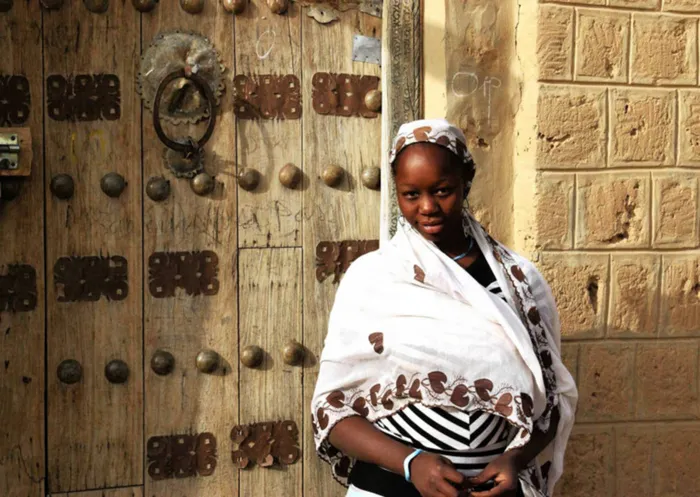‘It is the destruction of people's soul’

File photo: A woman stands in front of a traditionally decorated door in Timbuktu, Mali. File photo: A woman stands in front of a traditionally decorated door in Timbuktu, Mali.
Bamako - “What happened in Timbuktu is not only to destroy people's past but to destroy their beliefs. It's crazy, simply crazy. It is the destruction of people's soul,” laments Samuel Sedibe, the director of Mali's National Museum.
Starting in May, rebels in control of northern Mali began to destroy ancient tombs and mosques, revered by the local population for centuries, saying strict sharia law prohibited any veneration of saints.
The rebels, some with associations to al-Qaeda, defied pleas from the United Nations, which had declared the area a World Heritage Site, and even from Malians themselves. They damaged nearly a dozen locations in the following weeks.
“This is our history, our past. To think that the past must be condemned is horrible, it is to say we did not exist before,” says Sedibe, whose museum in Bamako houses some artifacts from the ancient city, though most of Timbuktu's treasures still rest in the north of Mali.
Timbuktu was a trading city in the 14th century and served as a hub for spreading Islam in West Africa.
The mosques in the city were uniquely designed structures, often made of mud. They have survived for hundreds of years. Rare books and manuscripts are stored in archives.
“It is the link between the Mediterranean and West Africa, it is a kind of centre, where north and south would meet,” Sedibe explains.
In modern times, it was an ethnic Tuareg rebellion - Tuareg people founded Timbuktu in the 11th century at a key spot along the Niger River - that wrested the north of the country from the government's already weak control.
Islamists, piggybacking on the rebels' efforts, then defeated their former allies and solidified strict Islamic rule in key cities by June. Some fighters come from abroad and espouse the more radical idea of global jihad.
“I can't help but think about Afghanistan. In Afghanistan, the world said: these sites are important. So the Taliban went ahead and destroyed it. The same thing is happening here,” says Sedibe, referring to the destruction of gigantic stone carvings of Buddha in the Asian country.
Unesco, the UN's culture and education agency, is trying to gain access to the areas to assess what can be fixed. For many Malians, destroying the symbolic tombs goes against the country's culture.
“We all carry around a locket or something for good luck or to warn off evil spirits. But we remain Muslims,” said one Malian official involved in the talks to get UN experts to the north.
Timbuktu is also tied to Mali's gold, an historic export of the country, which today remains one of the largest producers in Africa.
Mansa Musa, a king of Mali in the early 14th century, is believed to have been the only man in history to have controlled the gold price across most of the Sahara, the Mediterranean and North Africa.
After a pilgrimage to Mecca, in accordance with the basic tenets of Islam, Musa returned to West Africa.
He attracted thousands of religious students by setting up numerous places of learning and worship in northern Mali, including the Djinguereber Mosque in Timbuktu, one of the world heritage sites the Islamists partially destroyed using shovels and axes.
Aliou Boubacar Diallo is an admirer of the ancient king and a rare Malian in that he owns a gold mine, while most are under foreign concessions.
In 2010, when Mali celebrated its 50th anniversary of independence from colonial France, Diallo's created a commemorative series of gold coins, each one worth about 2,000 dollars. The black Kaaba in Mecca is imprinted on one side, while the Djinguereber mosque is on the other.
“Timbuktu is a place that is important for me and all Malians. It is a symbol of peace and unity and a symbol of sharing,” he said. Looking at the coin, he remarks: “I made this as part of a struggle to preserve the heritage of Mali.”
For him, Timbuktu not only links Europe and Africa, but also connects his home continent to its exiles abroad, in particular those who were sold into slavery to European owners.
“This mosque was built before the trans-Atlantic slave trade picked up. So this is something that all Africans around the world share. All our ancestors have this in common,” he says.
“The Islam these so-called Islamists want to impose is entirely different to the historic Islam that reigned in Timbuktu. It is far too radical,” Diallo said.
“The prophet Mohamed himself would not have accepted this type of Islam. The rebels are attacking our fellow Muslims and this is not acceptable.” - Sapa-dpa